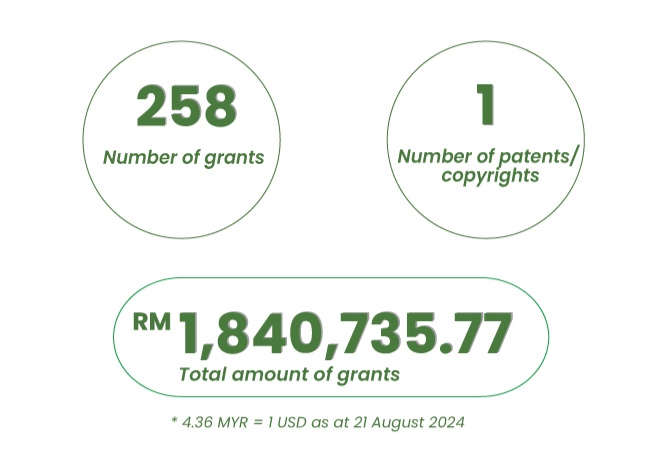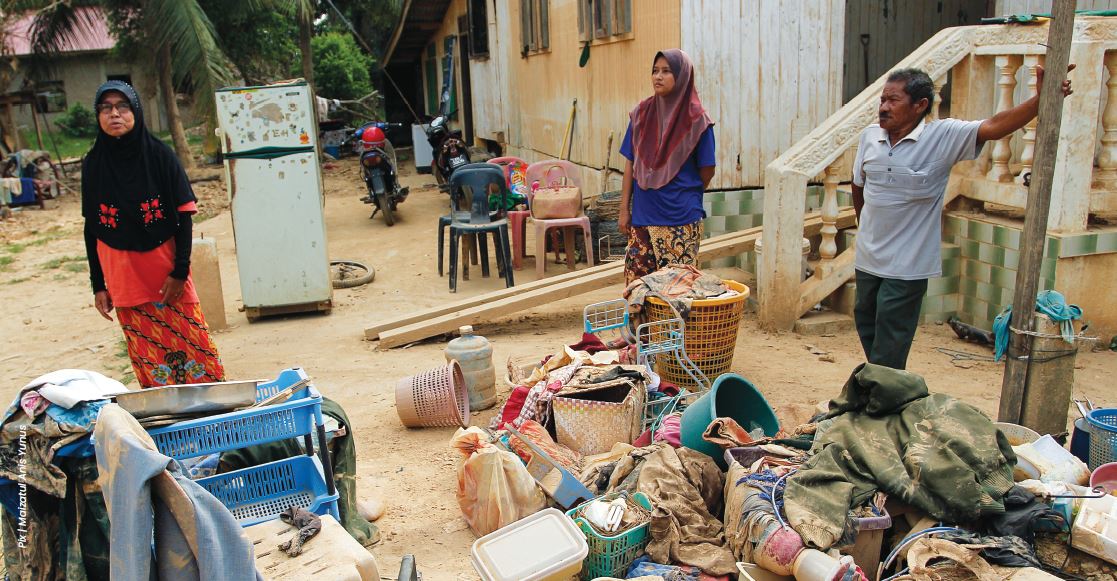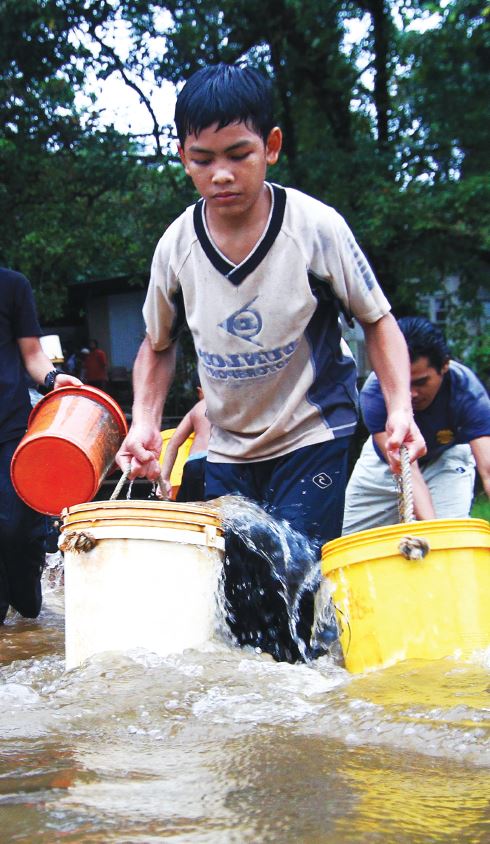Take urgent action to combat
climate change and its impacts


Smart Flood: Empowering Communities through Advanced Flood Management Technologies
Kampung Padang Jawa, Shah Alam, was severely affected by the big flood in December 2021, causing more than 30 families to move to temporary shelters. Padang Jawa’s location on the banks of the Klang River is among the causal factors.
To address the problem, the College of Computing, Informatics, and Mathematics (KPPIM), UiTM Shah Alam, organised the Smart Flood programme under the Service Learning Malaysia–University for Society (SULAM) initiative on 16th December 2023. The programme used an intelligent technology approach and information system to efficiently manage and overcome the flood problem using sensors, data analysis, and ICT infrastructure to monitor weather conditions, water flow, rivers, and environmental conditions at risk of flooding. A total of 140 students from the Bachelor of Information Systems (Hons) Intelligent Systems Engineering and the Bachelor of Computer Science (Hons) Multimedia Computing were guided to implement aneffective flood management strategy. This included the installation of Flood Detectorson the banks of the Klang River with features such as the Geographic Information System (GIS), Communication and Emergency Alternative Routes, and mobile applications to report conditions of flood, receive warnings, and access important information. A relief log was also available to display data on relief aids being donated and stored.
The initiative sought to empower and serve the community through volunteer activitieswhile contributing to student academic and professional development and supportingthe aspirations of SDG 13 (Climate Action).
| https://news.uitm.edu.my/uitm-merevolusikan-pengurusan-banjir-di-kampung-padang-jawa-dengan-teknologi-pintar/ |



